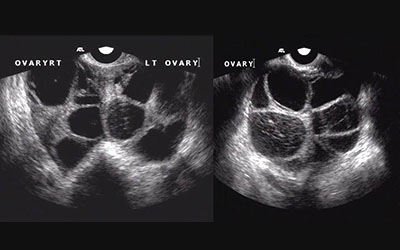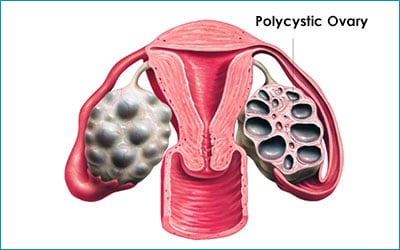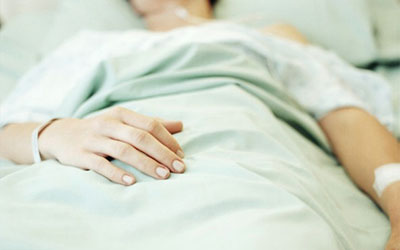13 November 2015
•3 minute read
Ovarian Hyperstimulation Syndrome: An Unwanted Outcome in IVF Treatment
Ovarian hyperstimulation syndrome (OHSS) is a potentially serious complication of fertility treatment, particularly of in vitro fertilization (IVF) treatment.
IVF treatment involves giving medications in the form of injection to stimulate the ovaries. The aim is to get a reasonable number of follicles/eggs from the ovaries so that enough embryos are produced following fertilization.
In ovarian hyperstimulations, as a results of abnormal response of the ovaries to medications, lots of follicles/eggs are produced. The ovaries will become enlarged and there will be lots of fluid in the abdomen called ascites.

The symptoms are abdominal swelling or bloating because of enlarged ovaries, nausea and as the condition gets worst, vomiting.
OHSS can be categorized as mild, moderate or severe so that the treatment the women received following OHSS can be more symptomatic.
Mild symptoms are common in women having IVF treatment.
As many as one in three (33%) women develop mild OHSS. About one in 20 (5%) women develop moderate or severe OHSS.
The risk of OHSS is increased in women who have polycystic ovaries , under 30 years, have had OHSS previously and become pregnant, particularly if this is a multiple pregnancy (twins or more).

OHSS Categories
MILD OHSS
Mild abdominal swelling or bloating, abdominal discomfort and nausea.
MODERATE OHSS
Symptoms of mild OHSS but the swelling and bloating is worse because fluid is building up in the abdomen. There is abdominal pain and vomiting.
SEVERE OHSS
Symptoms of moderate OHSS includes extreme thirst and dehydration because so much fluid is building up in the abdomen, passing very small amounts of urine which is very dark in color (concentrated). There can be difficulty in breathing due to the build-up of fluid in the chest and a red, hot, swollen and tender leg due to a clot in the leg or lungs (thrombosis).
Why OHSS can be dangerous?
Overstimulated ovaries enlarge and release chemicals into the bloodstream that make blood vessels leak fluid into the body. Fluid leaks into your abdomen and, in severe cases, into the space around the heart and lungs. OHSS can affect the kidneys, liver and lungs. A serious, but rare, complication is a blood clot (thrombosis). A very small number of deaths have been reported especially if treatment starts late.
Initial treatment of OHSS
Most of your symptoms should usually be resolved in a few days. If you have mild OHSS, you can be looked after at home. If your fertility treatment does not result in a pregnancy, OHSS will get better by the time your period comes. If your fertility treatment results in a pregnancy, OHSS can get worse and last up to a few weeks or longer.
Make sure you drink clear fluids at regular intervals. Make sure you do not drink in excess. If you have pain, take ordinary paracetamol or codeine (no more than the maximum dose). You should avoid anti-inflammatory drugs (aspirin or aspirin-like drugs such as ibuprofen), which can affect how the kidneys are working. Even if you feel tired, make sure you continue to move your legs. You may also take anti vomiting tablets if you feel sick.
You need to see your doctor if you develop any of the symptoms of severe OHSS, particularly if you are not getting any pain relief. If you start to vomit, have urinary problems, chest pain or any difficulty breathing contact your fertility clinic immediately. If your symptoms worsen, or if you have the symptoms of severe OHSS, your doctor may advise you to be admitted to hospital. At the hospital, the doctor will carry out the tests for OHSS such as blood tests and ultrasound.
If you are vomiting, you may need a drip to replace the fluids you have lost. The fluid will help to keep you hydrated and may contain sugar and carbohydrates (for energy), minerals and chemical elements (for regulating and maintaining the organs in your body).

Treatment at the hospital
There is no specific test that can diagnose OHSS. A diagnosis is made on the basis of your symptoms. Your doctor will ask you to describe your symptoms and will examine you. In addition, your doctor may ask about how much urine you are passing and whether it is darker than normal. Your doctor will take an initial measurement of your waistline to see if the fluid is building up or reducing in your abdomen and also check your weight daily.
You will need an ultrasound scan of your ovaries to measure how big they are and whether there is any fluid build-up in your abdomen. Some blood test to measure how concentrated your blood is and how well your kidneys are working.
Your doctor may also need to give daily injections to prevent a clot in the legs or lungs from forming. If the fluid in the abdomen causing the abdomen to be tense and swollen, a procedure called paracentesis may be offered. This involves a thin needle or tube is inserted into the abdomen to remove the excessive fluid.
OHSS should be identified early to avoid severe complications. If treatment is commenced early, all the risks can be reduced to avoid fatality. For those with successful pregnancy, there is no evidence of problems in the baby as a result of OHSS.
Share:
Was this article helpful?
13 November 2015
•3 minute read
Ovarian Hyperstimulation Syndrome: An Unwanted Outcome in IVF Treatment
Articles and Video
Learn more about Obstetrics And Gynecology And Reproductive Medicine in Columbia Asia
Learn MoreShare:
Was this article helpful?
Health Packages
Elevate your health with tailored health packages at Columbia Asia Hospital. Take charge of your health journey today.

